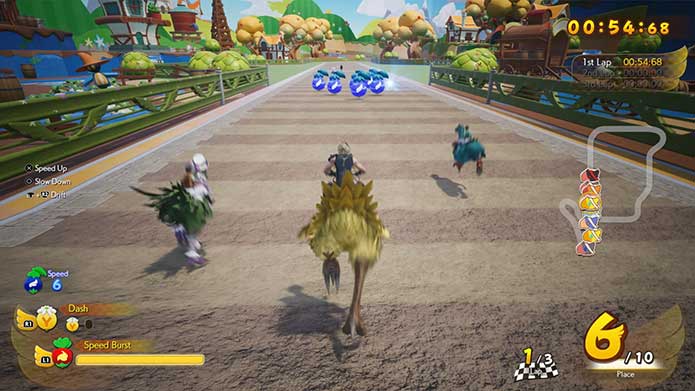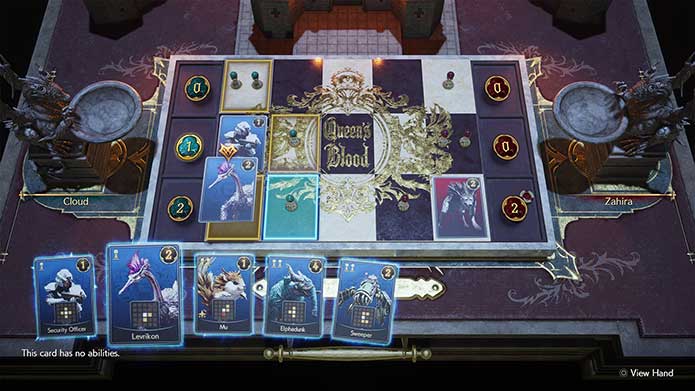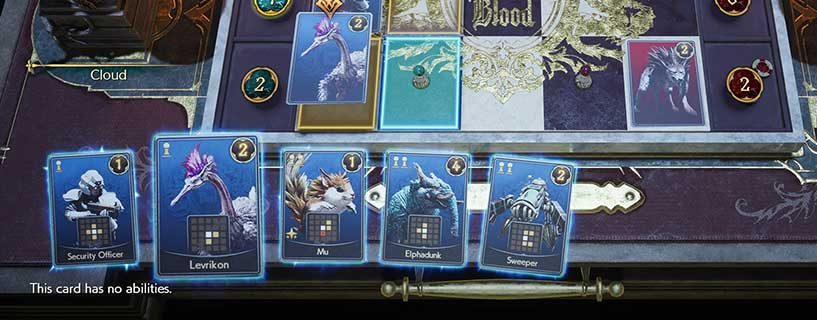In the vast universes of the Final Fantasy series, mini-games, particularly those reminiscent of gambling, have carved out a niche of their own. These playful diversions act as a refreshing pause from the adrenaline-filled battles and twisting tales, offering fans a distinctive manner to immerse themselves further into the storyline. While these games provided a virtual semblance of gambling, the progression of technology has paved the way for real-world digital gambling experiences that mirror the fantasy. For gamers curious about this transition from virtual realms to digital realities, exploring a crypto casino guide might be the next logical step, as it captures the essence of this transformative journey.
The Legacy of Gambling in Final Fantasy:
 Since its inception, the Final Fantasy series has intricately woven elements of gambling, offering players captivating mini-games that provide not only a fun diversion but also a taste of high-stakes play within a fantastical setting. The early versions gave us glimpses of this element with rudimentary card games and slots, but it was within the vibrant neon lights of “Final Fantasy VII“’s Gold Saucer that this gambling theme truly blossomed. This amusement park, constructed over the ruins of Old Corel, wasn’t just another location, it was an experiential tapestry of mini-games. From the thrill of Chocobo racing to the strategy-driven Battle Square, the Gold Saucer became a symbol of how the game’s developers cleverly interspersed engaging distractions amidst the intense main storyline.
Since its inception, the Final Fantasy series has intricately woven elements of gambling, offering players captivating mini-games that provide not only a fun diversion but also a taste of high-stakes play within a fantastical setting. The early versions gave us glimpses of this element with rudimentary card games and slots, but it was within the vibrant neon lights of “Final Fantasy VII“’s Gold Saucer that this gambling theme truly blossomed. This amusement park, constructed over the ruins of Old Corel, wasn’t just another location, it was an experiential tapestry of mini-games. From the thrill of Chocobo racing to the strategy-driven Battle Square, the Gold Saucer became a symbol of how the game’s developers cleverly interspersed engaging distractions amidst the intense main storyline.
While some may view these gambling-inspired mini-games as mere side quests, they hold a deeper significance. They challenge the player differently, offering unique rewards and, more importantly, adding layers of lore to an already expansive universe. Remember Setzer, “The Wandering Gambler” from “Final Fantasy VI”? His character, alongside his flying casino airship, the Blackjack, and the Dragon’s Neck Coliseum, emphasizes the allure of risk and reward, a theme echoed in many real-world gambling institutions.
From Pixels to Reality: How In-Game Casinos Mirror Real Ones:
In today’s digital age, the lines between in-game and online casinos are increasingly blurred, often making one identical from the other. Traditional game developers, aiming to enhance player engagement, seamlessly weave in elements reminiscent of real-world gambling, such as virtual slot machines, card games, and in-game currencies that mimic the thrill and risk of actual money gambling. This “gamification” isn’t merely a coincidence. Both arenas offer a platform fostering community, where players, whether on a quest in a virtual realm or pursuing jackpot riches, relish the thrill of competition and friendship. The gameplay in both domains demands strategy, skill, and a sprinkle of luck, creating an exciting balance that keeps players hooked. So, did traditional casinos inspire these game mechanics, or have modern game developers unintentionally reshaped real-world gambling? Whichever the answer, this intertwining of worlds reveals a fascinating evolution in both gaming and gambling spheres.
In FF7 Rebirth, the 2nd opus of the Final Fantasy 7 Remake, which will release next winter, there is also a card game called “Queen’s Blood”, which looks very promising and fun.

And the best thing is, you’ll apparently be able to play it throughout the whole game, challenge many different opponents, win new cards and improve your deck to then unlock new rewards. So this is quite the exciting news in the minigame department for this latest addition to the FF franchise.
The Rise of Digital Currency in Gaming:
Gaming has always thrived on the backbone of its unique in-game currencies, such as the iconic Gil in the Final Fantasy series. This digital tender, essential for purchasing in-game items and sometimes utilized in combat abilities like the “Gil Toss,” often exists in visually intriguing forms, reflecting designs inspired by the Japanese yen and ancient Chinese coins. As the digital world evolved, these in-game currencies began to mirror a larger trend: the emergence and popularity of cryptocurrencies. These decentralized digital assets, designed to function as mediums of exchange, have rapidly permeated various sectors, including entertainment. Just as players in games strategize on accruing and spending Gil or similar currencies, cryptocurrency users speculate, trade, and store digital coins. The parallelism is hard to ignore. As Gil has its profound place in the Final Fantasy universe, so does cryptocurrency in our digital age, weaving gaming and the real-world economy ever closer together.
In the Gold Saucer, you’ll have a unique currency to unlock rewards which you can only obtain at the Gold Saucer through playing its various minigames:

Modern-Day Digital Gambling:
Crypto casinos are the latest trend in online gambling, merging gaming with digital money. Like traditional casinos, they offer games, but players use digital currencies instead of cash. Think of them as an advanced version of the mini-games in titles like Final Fantasy. While the older games were simple fun, crypto casinos offer a broader range of games like blackjack and slots. Both share the excitement of strategy and luck. However, using cryptocurrencies in gambling comes with its own risks, like changing regulations and the ups and downs of digital currency values. Players should be aware and play wisely. Additionally, crypto casinos can provide an extra layer of privacy since players aren’t required to share personal details. This decentralization offers freedom, but also requires users to be proactive about their security. It’s a new era for gambling enthusiasts, merging the thrill of games with the digital finance world.


 by Symphonie
by Symphonie
I love all the mini games within the Final Fantasy series, specifically the TCG mini games.